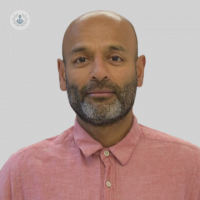Treatments for short stature in children and young people
Written in association with:Short stature in children and young people can be a source of concern for both parents and healthcare providers. While short stature may be a natural variation in growth patterns, it can also be the result of underlying medical conditions. Early diagnosis and intervention are essential to ensure appropriate treatment, where necessary, and to maximise growth potential.

What is short stature?
Short stature refers to a height that is significantly below the average for a child's age and sex. Generally, a child is considered to have short stature if their height is more than two standard deviations below the average height for their age group. This means they fall below the third percentile on a growth chart. Short stature can be caused by a range of factors, including genetics, medical conditions, or hormonal imbalances.
What are the causes of short stature?
The causes of short stature in children can vary widely, and it’s important to differentiate between familial short stature, where short height is inherited, and growth issues related to medical conditions. Some common causes include:
- Familial short stature: If both parents are shorter than average, the child may also be naturally shorter. This does not typically require medical intervention.
- Constitutional growth delay: Some children experience delayed growth but eventually catch up to their peers as they reach puberty.
- Growth hormone deficiency: A lack of growth hormone production by the pituitary gland can significantly affect a child’s growth.
- Chronic illnesses: Conditions such as coeliac disease, inflammatory bowel disease, or kidney disease can impede growth.
- Turner syndrome: This genetic disorder affects females and leads to short stature as one of its key features.
- Hypothyroidism: An underactive thyroid can slow down growth and development.
When should you seek treatment for short stature?
Parents should consider consulting a healthcare provider if their child:
- Falls significantly behind peers in height.
- Experiences a noticeable slowing of growth compared to previous years.
- Shows symptoms of underlying medical conditions, such as fatigue, weakness, or developmental delays.
- Exhibits delayed puberty or other signs of hormonal imbalance.
Early intervention is key to diagnosing any underlying conditions and initiating the most appropriate treatment.
How is short stature diagnosed?
Diagnosis begins with a thorough evaluation of the child’s growth patterns and medical history. Doctors will measure height, weight, and growth velocity, while also considering family history. Blood tests may be performed to check for hormonal imbalances or chronic illnesses, and imaging tests like X-rays can help assess bone development. In some cases, genetic testing is recommended to rule out conditions like Turner syndrome.
What treatments are available for short stature?
Short stature treatment is dependent on its underlying cause. The aim of treatment is to support normal growth and development wherever possible. Some of the most common treatments include:
1. Growth hormone therapy
Growth hormone therapy is one of the most effective treatments for children with growth hormone deficiency. Synthetic growth hormone is administered through daily injections, helping to stimulate growth in children who have an underproduction of natural growth hormone. It is often initiated after a diagnosis of growth hormone deficiency and continues until the child reaches a normal height or their growth plates close.
2. Thyroid hormone replacement
If hypothyroidism is the cause of short stature, treatment involves replacing the deficient thyroid hormones with synthetic versions (levothyroxine). Once thyroid hormone levels are normalised, the child’s growth rate often improves significantly.
3. Treating underlying medical conditions
For children with chronic illnesses such as coeliac disease or inflammatory bowel disease, managing the primary condition is essential. Treatment may include dietary changes, medication, or other interventions aimed at controlling the underlying disease, which can then allow for improved growth.
4. Sex hormone therapy
In cases where delayed puberty is contributing to short stature, hormone replacement therapy (HRT) may be used to stimulate the onset of puberty and support growth. This is more common in children with constitutional growth delay or those with delayed puberty due to other causes.
5. Surgical options
In rare cases where a child’s short stature is due to severe skeletal dysplasia or other structural abnormalities, surgery may be considered to lengthen bones or correct deformities. However, this is not commonly recommended and is reserved for specific situations.
Can short stature always be treated?
Not all cases of short stature require medical intervention. For example, children with familial short stature typically do not need treatment unless there is concern about underlying health issues. In contrast, children with medical or hormonal causes of short stature may benefit significantly from treatment. Early diagnosis is crucial for initiating effective treatment during critical growth periods.
Short stature in children can be a complex issue, with various potential causes ranging from natural growth variations to medical conditions. The appropriate treatment depends on the underlying cause, and options range from growth hormone therapy to managing chronic illnesses. Early intervention can play a key role in helping children achieve their full growth potential and lead healthy, active lives. If your child has noticeable growth delays, it is important to seek medical advice to determine the best course of action.


